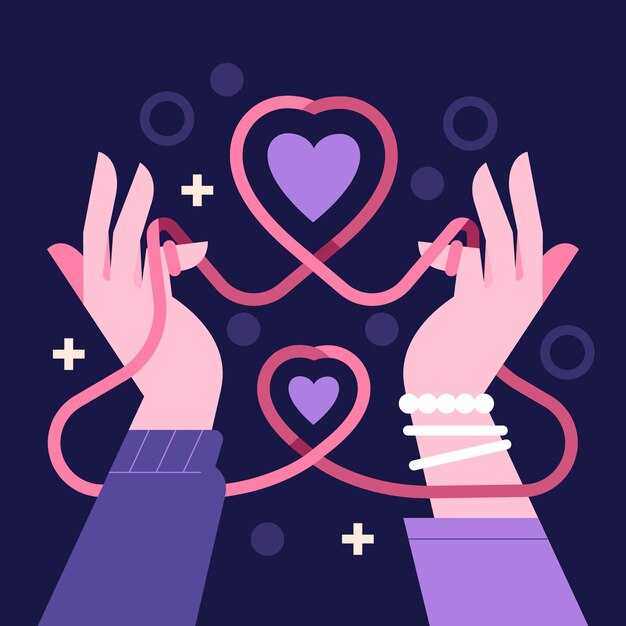Being ignored by someone, especially by someone who matters to you, cuts in a way that’s hard to describe. It’s not a physical blow or an argument — it’s an empty space where connection used to be — and that emptiness quickly fills with anxious thoughts. Did I mess up? Are they upset with me? Do they dislike me? You replay conversations in your head, scan messages, invent dozens of scenarios — most of them painful and humiliating — because being given the silent treatment feels like more than rejection. It feels like erasure, like your existence isn’t even worth a response. And that wounds you deeply. But here’s a truth rarely spoken aloud: the anguish you feel when someone ignores you is often more than just a reaction to a single event. It’s a resurgence of something older and more primitive. If you were raised in an environment of emotional neglect, abuse, or unpredictability, the silence of someone now doesn’t come across as a mere social slight — it triggers a bodily panic. It brings you back to the rawest childhood moments when no one arrived, no one noticed your fear, no one reached out. So yes, the pain of being ignored is real. Yet if you find yourself magnetically drawn to people who do this, or you keep returning to them, that pattern is a signal. It suggests you were conditioned early to chase affection that was rarely available. You learned to attach to people who withheld warmth, who made love feel conditional, who used silence as punishment when you failed to please. It also indicates part of you still believes relief comes from winning that person back — proving you didn’t deserve their coldness. You try to fix it, not because the other person is kind or healthy, but because the avoidance reactivates a story that you’re not enough. If only they would speak, maybe you wouldn’t feel so small. The reality, though, is that emotionally mature people don’t weaponize silence to hurt others. They might need distance to process things, but they don’t vanish and leave you in torment. They don’t make you guess where you stand or teach lessons by pretending you don’t exist. So when silence wounds you, it isn’t solely about them. It’s part of a trauma-driven pattern that keeps drawing you toward people who disrespect boundaries, avoid communication, and disregard how their absence affects you. It’s not that you deserve being ignored — you absolutely don’t. Rather, deep inside you might still equate love with withholding, and therefore you may not notice mistreatment because it feels familiar. This is the crossroads: let the pain instruct you. Start asking not only how to stop the other person from ignoring you, but why you remain near people who treat you this way. Here’s a key point: emotionally secure people — those who have healed and know their worth — may feel the sting of silence, but they don’t spiral. They don’t abandon themselves in a frantic bid to regain someone’s favor. They refuse to let another’s withdrawal define their value. They don’t beg for connection that’s not offered. They acknowledge the hurt, they honor it, and they remember they don’t need to tolerate people who use silence as punishment. Quick invitation: there’s a free, short daily-practice course available that teaches two straightforward techniques to calm the internal storm when you’re triggered. It’s brief and effective, designed to help you feel clearer, more focused, and soothed quickly. Click the second link in the description below or scan the QR code shown, and you can begin immediately. If being ignored throws you into a downward spiral, that’s a trauma reaction — your nervous system lighting up red, your brain reading quiet as danger. Not because this single person wields extraordinary power, but because long ago you learned invisibility meant danger. When someone shutters you out and it hurts, it signals that healing is needed and that you deserve people who respond, speak, and show up. It signals that part of you still aches for attention you never received, that some version of you stands in a hallway waiting to be seen and is silently calling out. You don’t heal that wound by forcing someone to engage with you. You heal it by turning inward and grounding yourself in the fact that the person who ghosts, stonewalls, or treats your presence like an inconvenience cannot love you in the way you deserve. That’s hard to hear when the silence feels deafening and your phone stays dark and the inner voice screams that if you don’t fix this, you’re worthless. That voice isn’t truth — it’s trauma, shame, the past pretending to own you. You can choose not to listen. You can begin to respond to the pain differently: with boundaries, with distance, with honesty. People who truly care don’t leave you confused; they don’t punish with silence or wield your attachment against you. They see you, they talk, and when things go wrong they make repairs. That is what connection looks like. After enough exposure to emotionally available, mature people, being ignored stops feeling apocalyptic. It becomes what it is: a red flag. When you’ve healed enough to recognize that, you won’t be tempted to chase. You’ll step away — maybe not in anger, but with clarity. You’ll notice the pain without letting it dictate your actions, and you’ll know love doesn’t require proving your worth. Choosing silence in response to someone else’s neglect becomes an act of self-respect, not punishment. Quick note: if you’re watching related videos and suspect that childhood trauma might still be shaping your life, there’s a helpful checklist that outlines signs childhood neglect or abuse can leave behind. It can reassure you that what’s difficult now is understandable and that recovery is possible. You can download a “signs of childhood PTSD” quiz by clicking the top link in the description below or scanning the same QR code. That’s the turning point: the moment you stop replaying the past and stop trying to repair people who mistreat you, and instead begin to provide the steadiness and safety to yourself that you never received. When that happens, ignoring you loses its power because you’ve stopped abandoning yourself and finally understood that being ignored wasn’t evidence that something was wrong with you — it was evidence that something happened to you. Now you can choose a different path. If you found this helpful, there’s another related video you might like — it’s right here, and you can go watch it next. Do fears of abandonment or loneliness keep you stuck in unhealthy relationships, staying far past the point when you wanted to leave because the thought of leaving felt intolerable?
Practical tools to help when the silence hits

Below are simple, evidence-based steps you can use in the moment and practices to build longer-term resilience. You can start with just one and add more over time.
- Three quick grounding exercises
- Box breathing: inhale 4 seconds — hold 4 — exhale 4 — hold 4. Repeat 4 times to calm your autonomic nervous system.
- 5‑4‑3‑2‑1 sensory check: name 5 things you see, 4 you can touch, 3 you hear, 2 you smell, 1 you taste or one positive thing about your body right now. This shifts focus from catastrophic imagining to present reality.
- Name and locate: silently name the emotion (“hurt,” “fear,” “shame”) and point to where it lives in your body. Breathe toward that area for a minute — it decreases reactivity.
- Short scripts for setting boundaries or asking for clarity
- “I felt hurt when I didn’t hear back from you. Can we talk about what happened?”
- “If you need space, I understand. Please tell me when you expect to be back so I don’t assume the worst.”
- “I won’t engage when I’m being ignored as a punishment. If you want to reconnect, let’s agree on respectful communication.”
- Mini journaling prompts (5–10 minutes)
- What evidence supports that this silence is about me? What evidence suggests it’s about them?
- What would I say or do if I truly believed I am always enough?
- What boundary would protect my self-respect in this situation?
- Relationship red flags and green flags
- Red flags: silence used as punishment, inconsistent availability, refusal to take responsibility, stonewalling during conflict, regular emotional unavailability.
- Green flags: clear communication about needs and time-outs, consistent follow-through, willingness to repair, empathy for your feelings, mutual respect for boundaries.
- Small experiments to test safety
- Ask for a small, reasonable thing (a time to talk, a read receipt, a plan) and observe how they respond. Consistency over time is revealing.
- Offer vulnerability and notice whether your honesty is met with curiosity, dismissal, or punishment by silence.
- When to seek additional help
- If old hurts feel overwhelming or you find yourself repeatedly stuck in the same pattern, a therapist experienced in attachment work, trauma-informed care (CBT, EMDR, somatic therapies), or couples therapy can help.
- If the silence triggers thoughts of self-harm, panic attacks, or you feel unsafe, reach out to local emergency services or a crisis line in your area immediately.
- Longer-term practices that change wiring
- Regularly cultivate relationships with emotionally consistent people (friends, groups, mentors). Repeated exposure to safety recalibrates expectation.
- Practice self-soothing routines (regular sleep, movement, meaningful activities, comforting rituals) so your nervous system has predictable regulation independent of others’ responses.
- Learn and name your attachment style; that awareness helps you choose strategies that fit your tendencies rather than reacting on autopilot.
Remember: progress is gradual. The goal isn’t to never feel hurt again — it’s to respond to that hurt with care instead of urgent self-erasure. Each small boundary you draw, each grounding breath you take, and each honest conversation you attempt builds a new default: one where you expect to be seen and you won’t accept silence as a lesson on your worth. Start with one practice this week — try a grounding exercise when you feel triggered and use one of the scripts to ask for clarity. Notice what changes in you and in how others respond. Over time, the internal alarm will quiet, and being ignored will feel like the signal it truly is: a prompt to care for yourself and, when necessary, step away.


 Skutej důvod, proč vás ignorují (není to, co si myslíte)">
Skutej důvod, proč vás ignorují (není to, co si myslíte)">

 7 SECRET TESTS You MUST Pass for AVOIDANTS to CHOOSE YOU | Avoidant Attachment Style">
7 SECRET TESTS You MUST Pass for AVOIDANTS to CHOOSE YOU | Avoidant Attachment Style">
 Anxious vs Avoidant: The Dramatic Relationship Trap You Can’t Escape | Avoidant attachment style">
Anxious vs Avoidant: The Dramatic Relationship Trap You Can’t Escape | Avoidant attachment style">
 Get Out of Romantic Obsession And Open Your Life to Real Love">
Get Out of Romantic Obsession And Open Your Life to Real Love">
 Quick Technique to Instantly Change How You See the World">
Quick Technique to Instantly Change How You See the World">
 How much PAIN have you BURIED in your Marriage?">
How much PAIN have you BURIED in your Marriage?">
 Love equals Effort">
Love equals Effort">
 Overcome Hardships and Change Your Life (4-Video Compilation)">
Overcome Hardships and Change Your Life (4-Video Compilation)">
 You deserve someone who cares">
You deserve someone who cares">
 How to express FEELINGS without THEM getting DEFENSIVE!">
How to express FEELINGS without THEM getting DEFENSIVE!">
 Quit being a Self-Centered JERK in your Relationships">
Quit being a Self-Centered JERK in your Relationships">